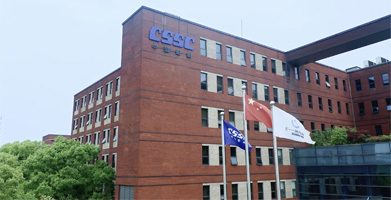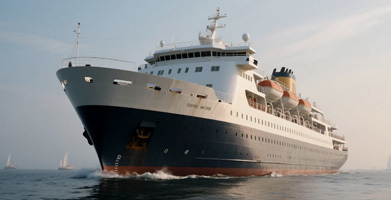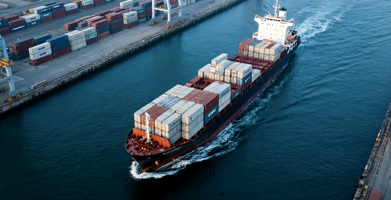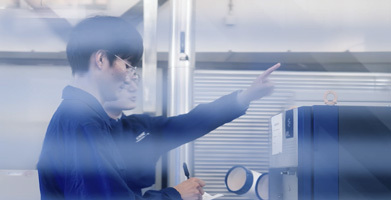◉ BLOG
To be a pioneer in ocean-going environmental protection with enthusiasm and innovation.
Solving the maritime carbon transfer challenge | SMDERI-QET achieves world’s first ship-to-ship LCO₂ transfer
Release time :
2025-06-19
On June 19th, Shanghai's Yangshan Deep-Water Port achieved a groundbreaking milestone in global shipping's green transition. Shanghai QiYao Environmental Technology Co., Ltd. (SMDERI-QET), a subsidiary of CSSC, successfully completed the world's first ship-to-ship liquified carbon dioxide (LCO2) transfer operation. The achievement was made possible by the company's independently developed the Onboard Carbon Capture and Storage System (OCCS), the world's first complete solution of its kind, installed on a 14,000-TEU container vessel with support from Shanghai Port Group Energy Company and Shanghai Port Group Logistics Co.This innovative achievement establishes China's pioneering "onboard carbon capture, liquefaction, storage, ship-to-ship offloading to a carbon utilisation facility" carbon ecosystem, delivering a replicable "China Solution" for international shipping emission reduction.
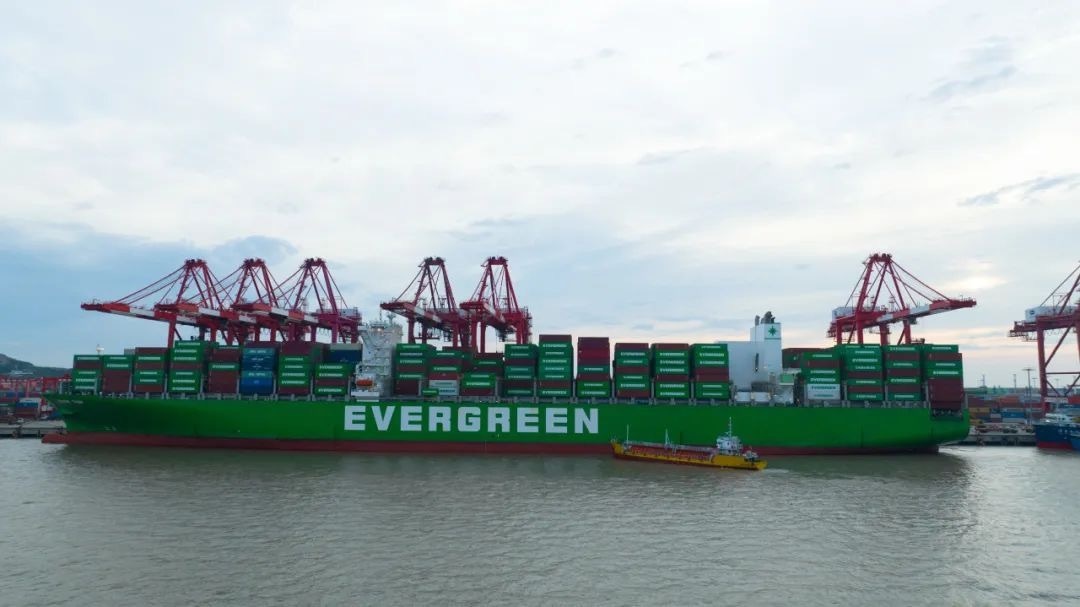
Under the binding net-zero emissions framework mandated by the International Maritime Organization (IMO), OCCS technology has emerged as a critical decarbonization pathway for the shipping industry. Developed by SMDERI-QET, the OCCS achieved a comprehensive CO2 capture rate of over 80% with a LCO2 purity of 99.9%,setting world-leading performance benchmarks in maritime decarbonization technology.
"At the end of April last year, we accomplished the world's first complete ship-to-shore offloading operation of captured CO2 using a full-process OCCS at Yangshan Port. However, China's ports currently lack large-scale CO2 reception infrastructure. The ship-to-shore transfer model imposes stringent requirements on port facilities - including berth compatibility, draft restrictions and other technical constraints - resulting in limited operational flexibility,"Su Yi, General Manager of SMDERI-QET says.
The safe and efficient transfer of LCO2 represents a critical enabler for the large-scale implementation of Onboard Carbon Capture and Storage System (OCCS), with ship-to-ship LCO2 transfer operations emerging as the key solution to overcome maritime carbon logistics challenges.
"The entire transfer operation involves precise vessel positioning, complex pipeline connections and pressure management, where even minor operational deviations could pose risks," explained Dr. Su Yi. During this ship-to-ship liquid carbon dioxide transfer at Yangshan Port, SMDERI-QET's carbon capture and storage team successfully overcame multiple technical challenges through close collaboration with all stakeholders, ultimately completing this world-first operational achievement.
Compared with the ship-to-shore connections, ship-to-ship LCO2 transfer technology significantly improves operational flexibility, making it possible to manage CO2 offloading for vessels operating in terminals with inadequate infrastructure across different maritime zones. The innovative ship-to-ship liquified carbon dioxide (LCO2) transfer technology provides a groundbreaking solution to the current global challenge of underdeveloped port infrastructure, while simultaneously removing a critical barrier to large-scale adoption of OCCS.
As the world's first operational implementation of its kind, this ship-to-ship LCO2 transfer operation has not only captured widespread attention across the maritime industry, but also demonstrated the power of collective industry advancement.
Professor Lu Yueling, CEO of the Global Centre for Maritime Decarbonisation (GCMD), stated: "We are honored to participate in the world's first pilot project for ship-to-ship transfer of onboard-captured LCO2. This initiative employs the most scalable offloading solution available, establishing critical foundations for developing the carbon value chain. We also look forward to leveraging this pilot project to further explore transportation pathways and end-use applications for LCO2."
And since the delivery of the first full-process OCCS in early 2024, SMDERI-QET has successfully completed multiple end-to-end LCO2 offloading projects, from capture to recycling, which have allowed participating owners to achieve higher CII ratings: A first for OCCS technology. The LCO2 unloaded during this ship-to-ship transfer operation will be transported via specialized CO2 carriers to designated storage and utilization facilities, achieving verifiable reductions in vessel carbon emissions.
The mature application of OCCS will significantly drive the development of the entire carbon capture, utilization and storage (CCUS) industrial chain, accelerating global shipping's green transition. Building on the achievements of this pioneering ship-to-ship LCO2 transfer operation, SMDERI-QET will collaborate with domestic and international partners to actively participate in and promote the establishment of relevant regulations and standards for shipboard carbon capture and transfer under the IMO framework. These efforts will expedite the development of a global carbon circular industrial chain and contribute China's expertise to achieving the shipping industry's net-zero emissions target.
keyword :
LCO₂,OCCS
Recommended News


